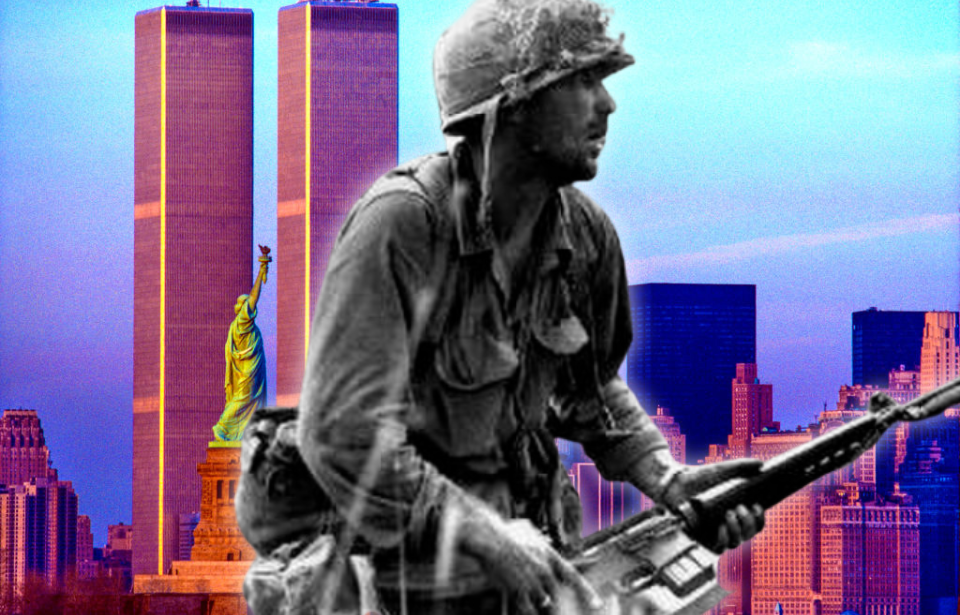The Battle of la Drang Valley marked the first major engagement of the Vietnam War. Approximately 36 years later, the first major battle of the Global War on Terror involved hijacked flights crashing into the Twin Towers in New York City and the Pentagon in Washington, DC. While many recall both events, Rick Rescorla is the only one to have experienced each. Tragically, the latter event led to his death.
Rich Rescorla was inspired by American troops
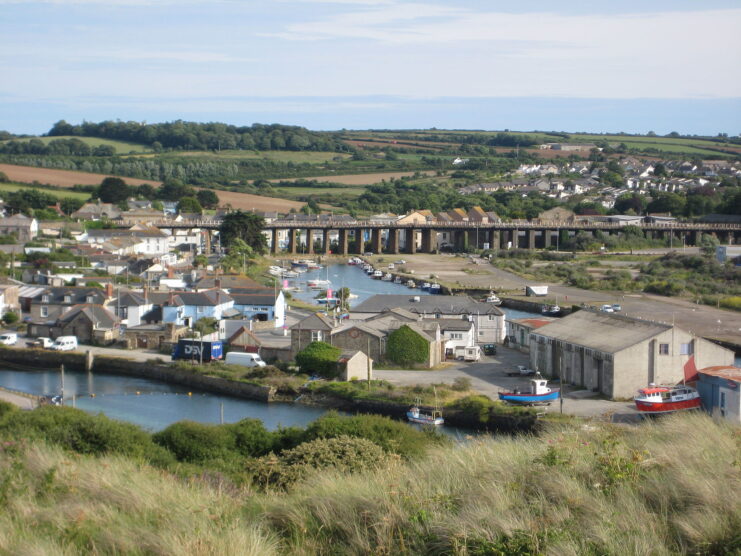
Rick Rescorla was born in Hayle, Cornwall, United Kingdom, on May 27, 1939. During the Second World War, his town served as the headquarters for the US Army’s 175th Infantry Division, 29th Infantry Division, which was preparing for the Allied invasion of Normandy in 1944. The young Rescorla found the soldiers’ presence awe-inspiring, and he knew he wanted to become one.
Naturally athletic and without much interest in academia, Rescorla opted to enlist in the British Army. He underwent training as a paratrooper with the Parachute Regiment and was sent to Cyprus, serving there with an intelligence unit from 1957-60.
From the British Army to the Northern Rhodesia Police
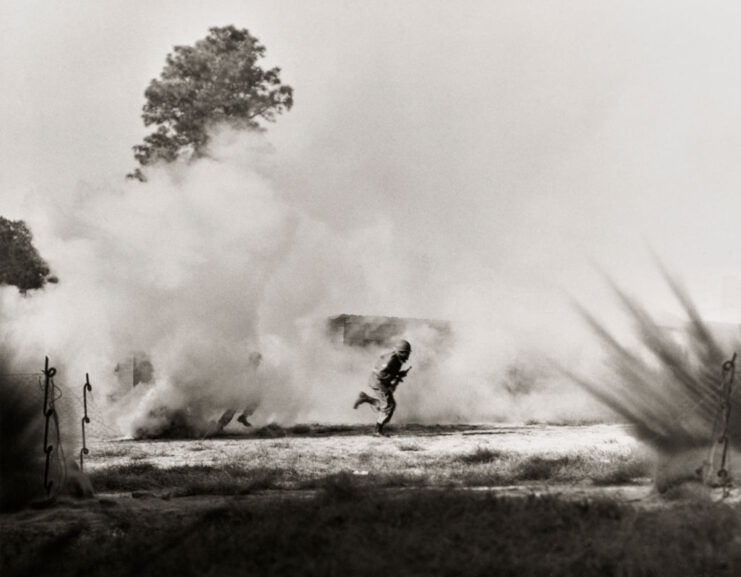
Following his service with the British Army, Rick Rescorla moved to North Rhodesia (today Zambia) to join the protectorate’s police force. During this time, he backed the South African forces in engagements against the Soviets, which instilled in him a dislike for Communism.
This era of Rescorla’s life also saw him meet Daniel J. Hill, an American soldier who’d ultimately change his life. Hill encouraged him to enlist in the US Army, but not before the Brit moved to London for a short stint with the Metropolitan Police. Wanting to see more action, Rescorla relocated to Brooklyn and joined the US military.
Following the completion of Basic Training at Fort Dix, New Jersey, Rescorla attended Officer Candidate School and Airborne Training at Fort Benning (now Fort Moore), Georgia. Following his graduation, he earned a commission as a second lieutenant and platoon leader with the 2nd Battalion, 7th Cavalry Regiment, 1st Cavalry Division (Airmobile).
Before long, he and his comrades were deployed to Vietnam.
Battle of Ia Drang
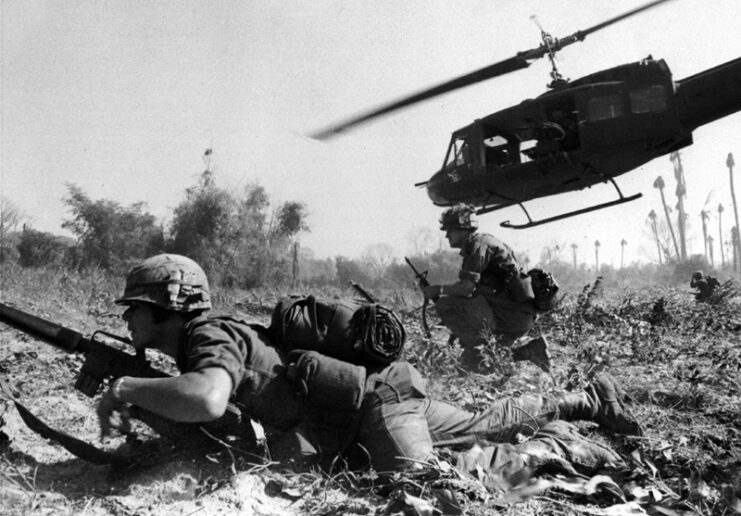
Between November 14-18, 1965, the Battle of Ia Drang raged between the Americans and the North Vietnamese (NVA). Occurring just 10 miles from the border with Vietnam, it centered around two helicopter landing zones (LZ): X-ray and Albany.
Rick Rescorla fought in the engagement under the command of Lt. Col. Hal Moore. With the American forces overrun by the NVA and in need of support, the platoon leader’s B Company was called in. Keeping his men’s morale up through song, Rescorla aided in the digging of foxholes, set up a defensive perimeter and established firing lines, all while dodging the heavy North Vietnamese fire. He even neutralized an enemy machine gun nest with a grenade.
During B Company’s evacuation, the attack intensified. Rescorla’s men were, once again, called in to support. Through enemy fire, they bravely fought, with Moore later saying Rescorla was “the best leader I ever saw.” A testament to his bravery, this sentiment was later immortalized with the publishing of We Were Soldiers Once.. And Young, which featured an image of him on the cover.
For his efforts in Vietnam, Rescorla was the recipient of the Bronze Star with Oak Leaf Cluster, the Silver Star, the Vietnamese Cross of Gallantry and the Purple Heart.
Rick Rescorla kept busy after the Vietnam War
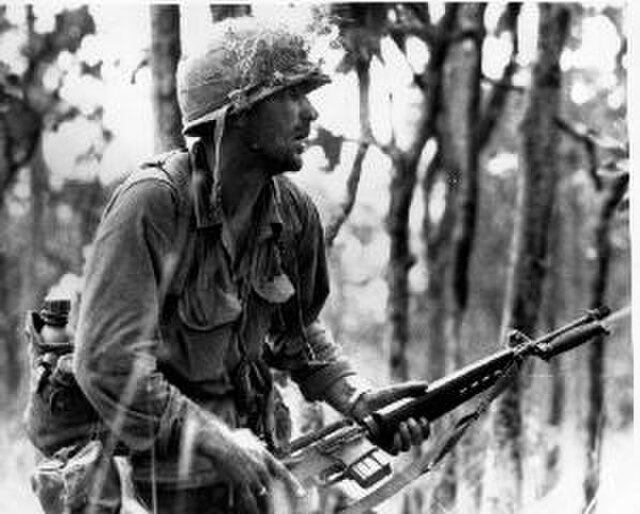
After returning from Vietnam, Rick Rescorla joined the US Army Reserve, ultimately attaining the rank of colonel before retiring in 1990. In the same year he concluded his active-duty service, he also became an American citizen in 1967.
During his time in the Reserve and while utilizing his military benefits, Rescorla earned both his Bachelor’s and Master’s degrees from the University of Oklahoma, where he met his first wife, Betsy Nathan. He taught criminal justice in South Carolina before switching careers to corporate security. Rescorla and Betsy moved to New Jersey, but their marriage ended following the relocation.
Years later, Rescorla was diagnosed with prostate cancer that had metastasized to his bone marrow. He underwent treatment for the illness, with his second wife, Susan Greer, supporting him in maintaining a positive outlook.
Concerned about the safety of the World Trade Center (WTC)
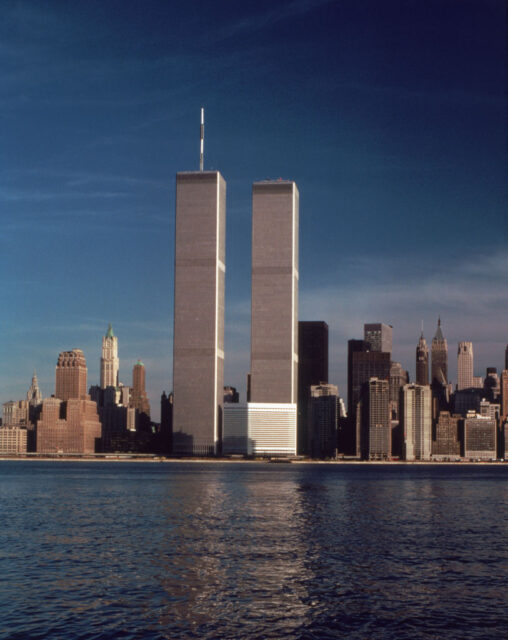
With his transition into corporate security, Rick Rescorla got a job with Dean Witter, which later merged with Morgan Stanley. Following the bombing of Pan Am Flight 103 in December 1988, he worried about the vulnerability of the World Trade Center (WTC), where the banking company had an office spanning numerous floors. These concerns only increased when a bomb was detonated at the site in 1993.
Worried that a worse attack could occur, given the prominence of the WTC, Rescorla urged Morgan Stanley to relocate, but this wasn’t possible, as the company’s lease ran until 2006. Not wanting anyone caught unprepared during a potential attack, the veteran held evacuation drills every three months that involved all employees; even if the security measures at the WTC couldn’t (or wouldn’t) be increased, he wanted those he was responsible for to get out safely.
September 11, 2001
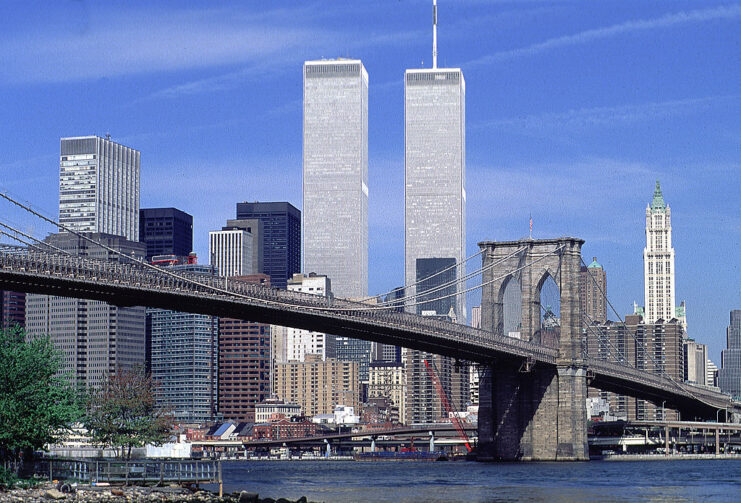
At 7:30 AM on September 11, 2001, Rick Rescorla settled himself in at his desk on the 44th floor of the South Tower at the World Trade Center. Just over an hour later, at 8:46 AM, he watched from his window in horror as an explosion erupted from the North Tower. American Airlines Flight 11 had been hijacked and flown right into the building.
Despite the Port Authority telling tenants within the South Tower to remain at their desks, Rescorla knew they weren’t safe. As he had done during his drills, he ordered everyone across Morgan Stanley’s 22 floors to evacuate via the South Tower’s stairwells. He used a bull-horn, cellphone and walkie-talkie to make sure everything went as smoothly as possible.
It turns out Rescorla made the right call, as, at 9:03 AM, United Arlines Flight 175 struck the South Tower.
Going back into the South Tower to save more people
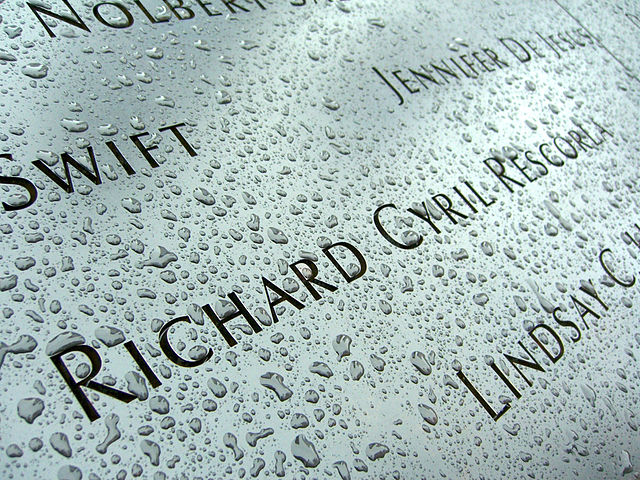
With nearly 2,700 Morgan Stanley employees evacuated, Rick Rescorla ran back into the South Tower to search for others. When the building collapsed at 9:59 AM, he was seen on the 10th floor, heading upstairs.
It’s reported that 10 Morgan Stanley employees perished on 9/11, including Rescorla, whose body has never been identified. The others included the veteran’s deputies, Jorge Velasquez and Wesley Mercer, and security guard Godwin Forde.
As with others who perished during the attacks, Rescorla was memorialized at the National September 11 Memorial & Museum in New York City. His heroics on that tragic day led the US Department of Homeland Security to create the Rick Rescorla National Award for Resilience, and his wife was presented with the Presidential Citizens Medal in 2019, on his behalf. A statue of him was also erected along the Walk of Honor at the National Infantry Museum at Fort Moore, Georgia.
New! Want to become a trivia master? Sign up for our War History Fact of the Day newsletter!
More from us: The 1969 Draft Lottery Fueled Anti-War Sentiments In the United States During the Vietnam War
For his military feats, the veteran and hero was inducted into both the Oklahoma Military Hall of Fame and the Infantry Officer Candidate School Hall of Fame.
